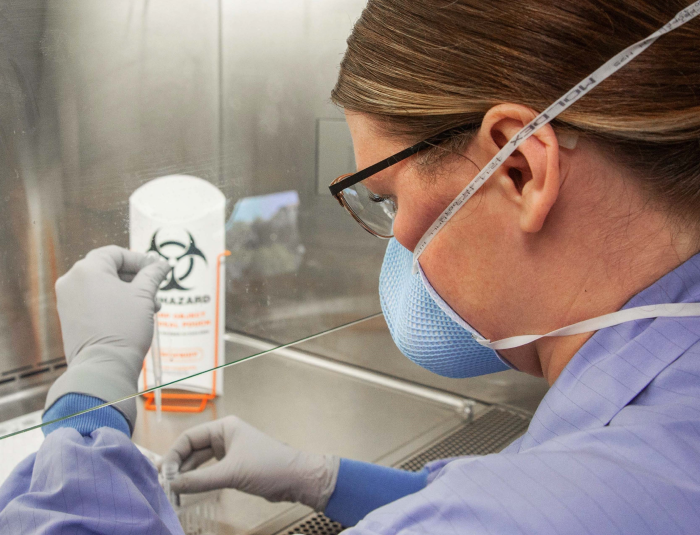MIDRP Tackles Shifting Targets While Focusing on Singular Goal

Over the past year, the U.S. Army Medical Research and Development Command’s Military Infectious Diseases Research Program has – like so many other research programs – assumed the doubled responsibilities of fighting COVID-19 while still managing its existing program areas. As one of the DOD’s key tools in combating infectious diseases that impact the Warfighter, the mission for MIDRP has, in many ways, never been more vital.
“MIDRP leads the planning and programming of research to develop countermeasures against endemic or emerging infectious diseases our deployed military forces will likely encounter,” said Col. Stuart D. Tyner, MIDRP Director. “Most of these diseases are not found within the United States, but are present in deployed locations around the world.”
MIDRP executes its mission through a multidisciplinary experienced team of military, civilian and contractor personnel united in a common goal to defeat infections. The team is comprised of top scientists and administrative staff who work together to plan, direct and administer the research portfolios for relevant military infectious diseases. The specific activities of MIDRP allow the team to utilize their expertise to develop the programmatic strategic plan and conduct technology landscape mapping to shape the direction of military research investment.
The Army, and the military as a whole, presents unique needs. Although MIDRP shares common research goals with traditional research organizations, the research program addresses the solutions gap left unfilled by other federal agencies, academia, international programs and private industry.
“Disease and infection degrade combat performance,” said Tyner, when asked about the importance of MIDRP to the mission of USAMRDC. “MIDRP leads the development of medical solutions to prevent, predict and treat endemic and emerging infectious diseases in order to prevent the degradation of combat performance and therefore maintain combat power.”
MIDRP oversees the research and development of a portfolio of solutions which includes prophylactics, treatments and diagnostics. They are currently working on solutions to prevent and treat deployment associated diarrheal diseases, endemic viral infections, combat wound infections at point of injury in a prolonged field care setting and other novel and emerging infections.
Specifically, MIDRP’s Wound Infections Program is leading the mission to work against combat wounds and wound infection-induced sepsis.
“Currently, more than 30% of all combat wounds become infected posing a major risk to Warfighter survivability and a significant burden to the Military Health System,” said Maj. Katie Carr, MIDRP military deputy. “Future combat operations against peer and near-peer adversaries will likely result in greater numbers of severely injured casualties. Coupled with delayed evacuation requiring prolonged care in the field, this will, in all probability, result in a high likelihood of wound infection and sepsis.”
In addition to their ongoing mission, MIDRP took up the responsibility of managing funds and research efforts focused on the prevention, detection and treatment of COVID-19 as a part of USAMRDC's collective effort. Their core efforts include planning, coordinating and overseeing the DOD requirements-driven medical solutions in order to maximize Warfighter readiness and performance.
The efforts of the team at MIDRP continue to provide benefit for not only the Warfighter, but for the Nation as well.
Learn more about MIDRP by visiting https://go.usa.gov/x6Nb5
 An official website of the United States government
An official website of the United States government
 ) or https:// means you've safely connected to the .mil website. Share sensitive information only on official, secure websites.
) or https:// means you've safely connected to the .mil website. Share sensitive information only on official, secure websites.


